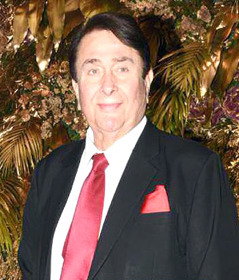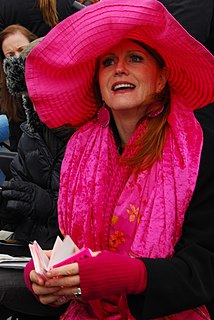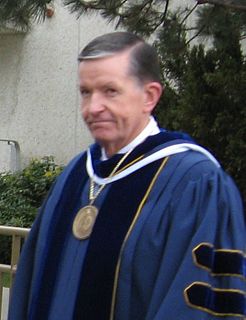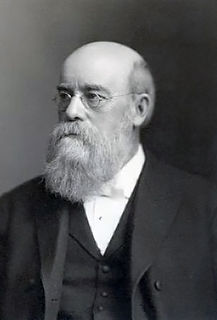A Quote by Randhir Kapoor
Shashi saab had always wished that the traditions continue, even after he bids adieu to the mortal world. He didn't want any of us to mourn his death; his desire was to celebrate life in every form.
Related Quotes
We are the spirit children of a Heavenly Father. He loved us and He taught us before we were born into this world. He told us that He wished to give us all that He had. To qualify for that gift we had to receive mortal bodies and be tested. Because of those mortal bodies, we would face pain, sickness, and death.
The whole life of Christ was a continual Passion; others die martyrs but Christ was born a martyr. He found a Golgotha even in Bethlehem, where he was born; for to his tenderness then the straws were almost as sharp as the thorns after, and the manger as uneasy at first as his cross at last. His birth and his death were but one continual act, and his Christmas day and his Good Friday are but the evening and morning of one and the same day. And as even his birth is his death, so every action and passage that manifests Christ to us is his birth, for Epiphany is manifestation.
I finally knew... why Christ's prayer in the garden could not be granted. He had been seeded and birthed into human flesh. He was one of us. Once He had become mortal, He could not become immortal except by dying. That He prayed the prayer at all showed how human He was. That He knew it could not be granted showed his divinity; that He prayed it anyhow showed His mortality, His mortal love of life that His death made immortal.
When Luke had descended into the River Styx, he would've had to focus on something important that would hold him to his mortal life. Otherwise he would've dissolved. I had seen Annabeth, and I had a feeling he had too. He had pictured that scene Hestia showed me—of himself in the good old days with Thalia and Annabeth, when he promised they would be a family. Hurting Annabeth in battle had shocked him into remembering that promise. It had allowed his mortal conscience to take over again, and defeat Kronos. His weak spot—his Achilles heel—had saved us all
Jesus Christ was the only one capable of performing the magnificent Atonement because He was the only perfect man and the Only Begotten Son of God the Father. He received His commission for this essential work from His Father before the world was established. His perfect mortal life devoid of sin, the shedding of His blood, His suffering in the garden and upon the cross, His voluntary death, and the Resurrection of His body from the tomb made possible a full Atonement for people of every generation and time.
The man who has lived his life totally, intensely, passionately, without any fear - without any fear that has been created in you by the priests for centuries and centuries - if a person lives his life without any fear, authentically, spontaneously, death will not create any fear in him, not at all. In fact, death will come as a great rest. Death will come as the ultimate flowering of life. He will be able to enjoy death too; he will be able to celebrate death too.
The life of any one can by no means be changed after death; an evil life can in no wise be converted into a good life, or an infernal into an angelic life: because every spirit, from head to foot, is of the character of his love, and therefore, of his life; and to convert this life into its opposite, would be to destroy the spirit utterly.
We fear death because of pain, and because of the thought that we may become obliterated. This idea is erroneous. Jesus showed himself in a physical form to his disciples after his death. Lahiri Mahasaya returned in the flesh the next day after he had entered mahasamadhi. They proved that they were not destroyed.
I had utterly abandoned myself to Him. Could any choice be as wonderful as His will? Could any place be safer than the center of His will? Did not He assure me by His very presence that His thoughts toward us are good, and not evil? Death to my own plans and desires was almost deliriously delightful. Everything was laid at His nail-scarred feet, life or death, health or illness, appreciation by others or misunderstanding, success or failure as measured by human standards. Only He himself mattered.
We do not always remember the things that do no credit to us. We justify them, cover them in bright lies or with the thick dust of forgetfulness. All of the things that Shadow had done in his life of which he was not proud, all the things he wished he had done otherwise or left undone, came at him then in a swirling storm of guilt and regret and shame, and he had nowhere to hide from them. He was as naked and as open as a corpse on a table, and dark Anubis the jackal god was his prosector and his prosecutor and his persecutor.































